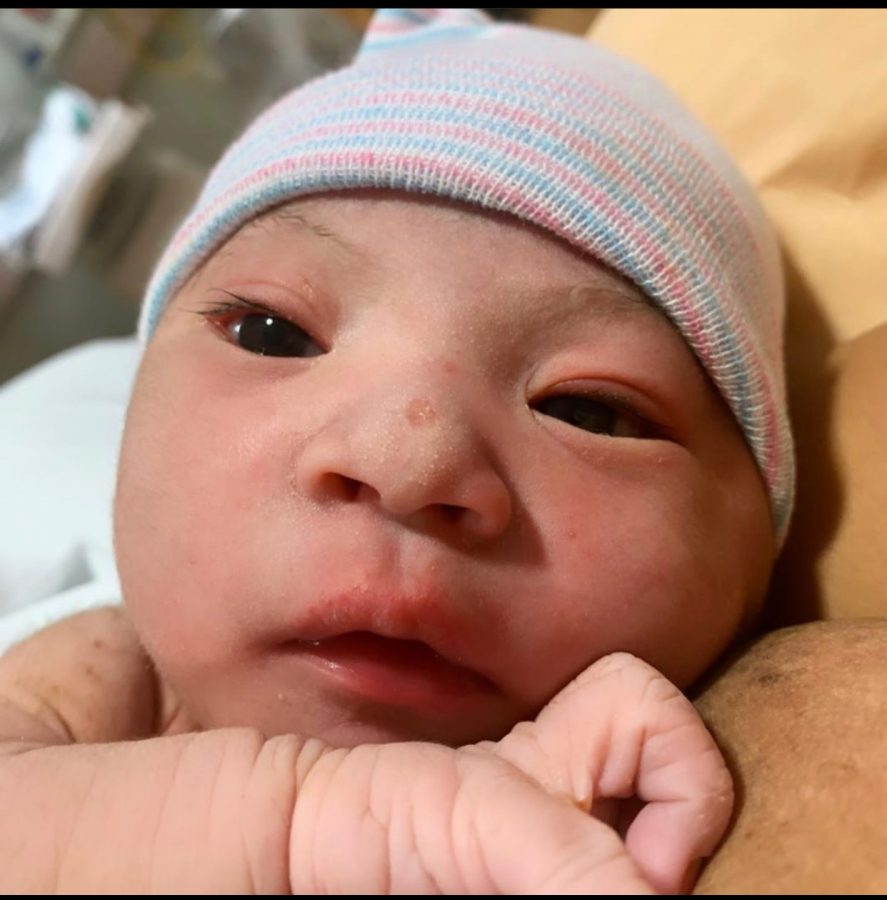Giving Birth In a Pandemic
Photo courtesy of Beverly Fereti
Nezekiah Fereti
It’s a difficult time to be giving birth.
More than 300,000 babies are born every day in the world, according to The World Counts. New mothers and mothers with experiences of giving birth have shared how challenging it is to give birth right now in the heart of a worldwide pandemic. For some, Covid has ruined their birthing plans, others are disappointed about not having their moms next to them. Giving birth at any time is hard, but Covid has created so many other issues for expectant mothers.
Beverly Fereti just gave birth to a baby boy, Nezekiah Fereti, this October. Fereti shared her struggle on how she was found to be positive for Covid a week before she was scheduled to give birth.
“So much was going through my head,” said Fereti, a 21-year-old from Ewa Beach. “I was scared out of my mind, and I didn’t know if the hospital was going to take me or not. … I was just worried about my baby. … But Queen’s [Medical Center] had a good system going on.”
If you have Covid when your baby is born, your newborn will be tested within 24 hours, which is consistent with guidelines from the CDC, Centers for Disease Control and Prevention. A very small number of babies have tested positive for Covid after birth. According to the CDC, it’s unlikely they got the virus during pregnancy and more likely that it happened shortly after birth.
Fereti was able to share the same room with her baby but needed to follow extra precautions, including wearing a mask while breastfeeding. She was able to have a birthing partner with her, which was her husband. The birthing partner had to be symptom-free or not recently tested positive. Fereti’s husband wasn’t positive because he was away at sea for work when she tested positive. At some hospitals, you are encouraged to have a back-up choice for a birth partner just in case.
“It was sad,” Fereti said. “I always had this image of my mom and my sisters being with me. All I had was my husband there, and he’s not much help. It’s different [not] having your mom there and a whole support system. I got to be there for my older sister’s birth last year, and I always pictured mine being like that with everyone I love, but it wasn’t.”
According to Parents, childbirth is different for everyone, labor usually feels like extremely strong menstrual cramps that take your breath away and make you unable to talk. As labor continues and the pain worsens, the pregnant person tunes out stimuli and adopts a tunnel vision, focusing on the labor and getting the baby out. Like most women, Fereti wanted more than just her significant other there to help her through the pain and witness life itself.
For Trisitan Vincent, a 27-year-old from Kapolei, her husband was the only person allowed in the room when she gave birth in September.
“The new protocols suck,” she said. “You have to take a Covid test when you check in and it sucks. Not only do I have to give birth and go through all that pain …. I also have to take a Covid test. … I’m not good with pain, so it was a rough couple of days.”
Vincent understands the protocols are set in place for the safety of others, herself, and the baby. She shared it’s hard to accept this when she had a set plan for her dream delivery.
The protocols set in place at Queens are to ensure people’s safety, according to Queens Hospital. When you arrive at the hospital for labor and delivery you will be tested for Covid. You will be greeted in your hospital room by staff in personal protective equipment. They will take your temperature and swab your nose to test for Covid. You also get tested 48 hours before a scheduled Caesarean section.
As Vincent was in the hospital, she felt the void of not having her loved ones by her side. She questioned why her loved ones were not allowed to take a 24-hour Covid test or quarantine for 14 days close to the due date. She gave birth during Hawaii’s worst stretch in Covid. On Sept. 1, Hawaii was in the midst of a one-month spike that saw an average of 238 cases per day over a 7-day period.
Vincent gave birth in September to her baby boy, Payton Vincent, at Queen’s Hospital. The baby had to go to the NICU (neonatal intensive care unit) because of heart problems. She could not have any visitors, like her mom, to help her in that sensitive time.
